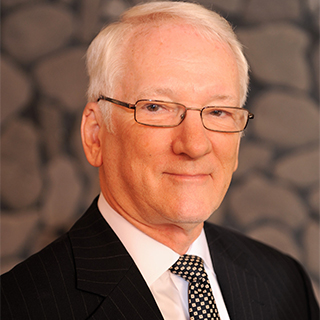Professor Edward Shortliffe is widely acknowledged as a global expert in biomedical informatics. His remarkable career has spanned over forty years, and has included senior appointments at some of the world’s most prestigious universities, hospitals, and medical and physician associations and colleges.
But he didn’t start off with medicine in mind: his initial training was in mathematics and computer science. Although he was born in Edmonton, Alberta, as a boy he moved with his parents to the United States. He went on earn an undergraduate degree in applied math and computer science at Harvard College in 1970, before completing a PhD in Medical Information Sciences at Stanford University in 1975.
After earning his doctorate, Edward Shortliffe enrolled in the Medical Scientist Training Program at Stanford and upon completing the program in 1976, he won the Grace Murray Hopper Award from the Association for Computing Machinery as the most distinguished computer scientist under the age of 30. He combined this brilliance in computer programming with a medical degree, earning his MD at Stanford a year later. By this time, Dr. Shortliffe had foreseen the power of applying technology to bolster evidence-based medicine. He created the medical expert system known as MYCIN, and was one of the first to imagine the disruptive-yet-lifesaving potential of applying artificial intelligence to medical science.
His major contributions to the interdisciplinary field of medical informatics are reflected in his success as a book author and editor of several highly influential journals, including his current position as Editor-in-Chief of the Journal of Biomedical Informatics. He has also led several prestigious research programs and spearheaded the creation and evolution of graduate degree programs in biomedical informatics at Stanford, Columbia, and Arizona State universities.
Moreover, his outstanding record of leadership, including as Chair of the Journal Oversight Committee of the American Medical Association, President and CEO of the American Medical Informatics Association, and the founding dean of the Phoenix campus of the University of Arizona’s College of Medicine, illustrates his commitment to serving others.
